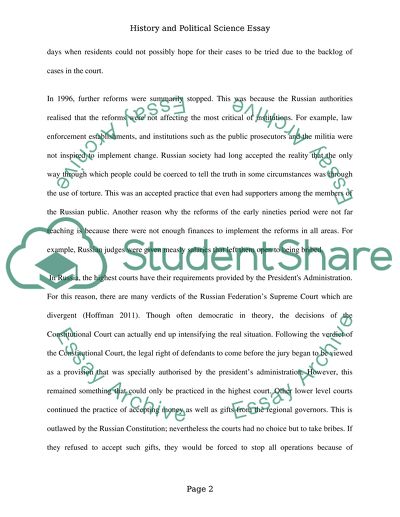Cite this document
(“To which extent have the reforms of the judicial system in Russia been Essay”, n.d.)
Retrieved from https://studentshare.org/history/1467432-to-which-extent-have-the-reforms-of-the-judicial
Retrieved from https://studentshare.org/history/1467432-to-which-extent-have-the-reforms-of-the-judicial
(To Which Extent Have the Reforms of the Judicial System in Russia Been Essay)
https://studentshare.org/history/1467432-to-which-extent-have-the-reforms-of-the-judicial.
https://studentshare.org/history/1467432-to-which-extent-have-the-reforms-of-the-judicial.
“To Which Extent Have the Reforms of the Judicial System in Russia Been Essay”, n.d. https://studentshare.org/history/1467432-to-which-extent-have-the-reforms-of-the-judicial.


